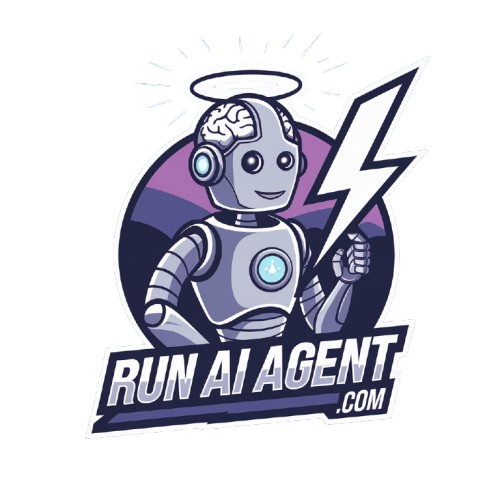Table of Contents
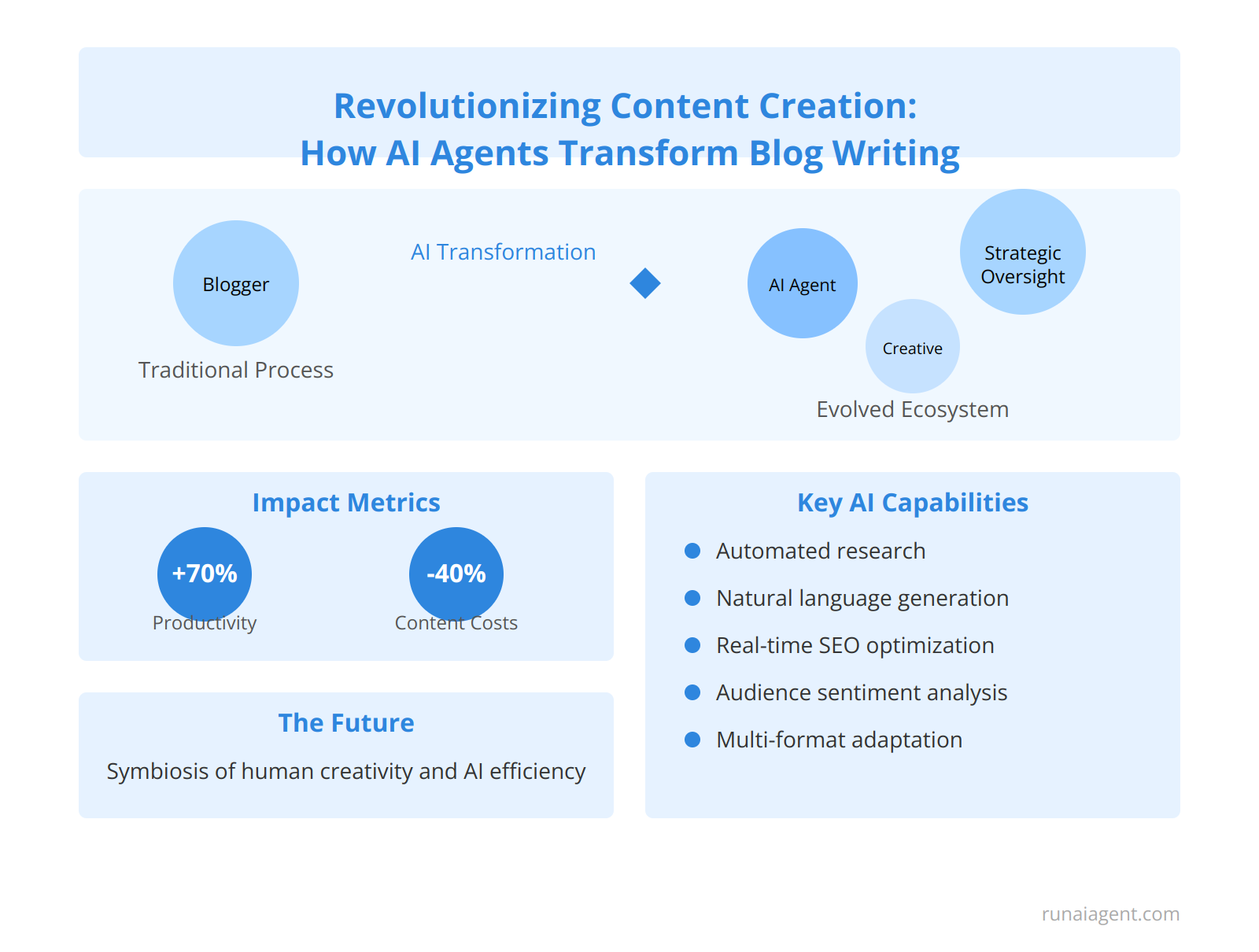
Revolutionizing Content Creation: How AI Agents are Transforming the Role of Blog Writers
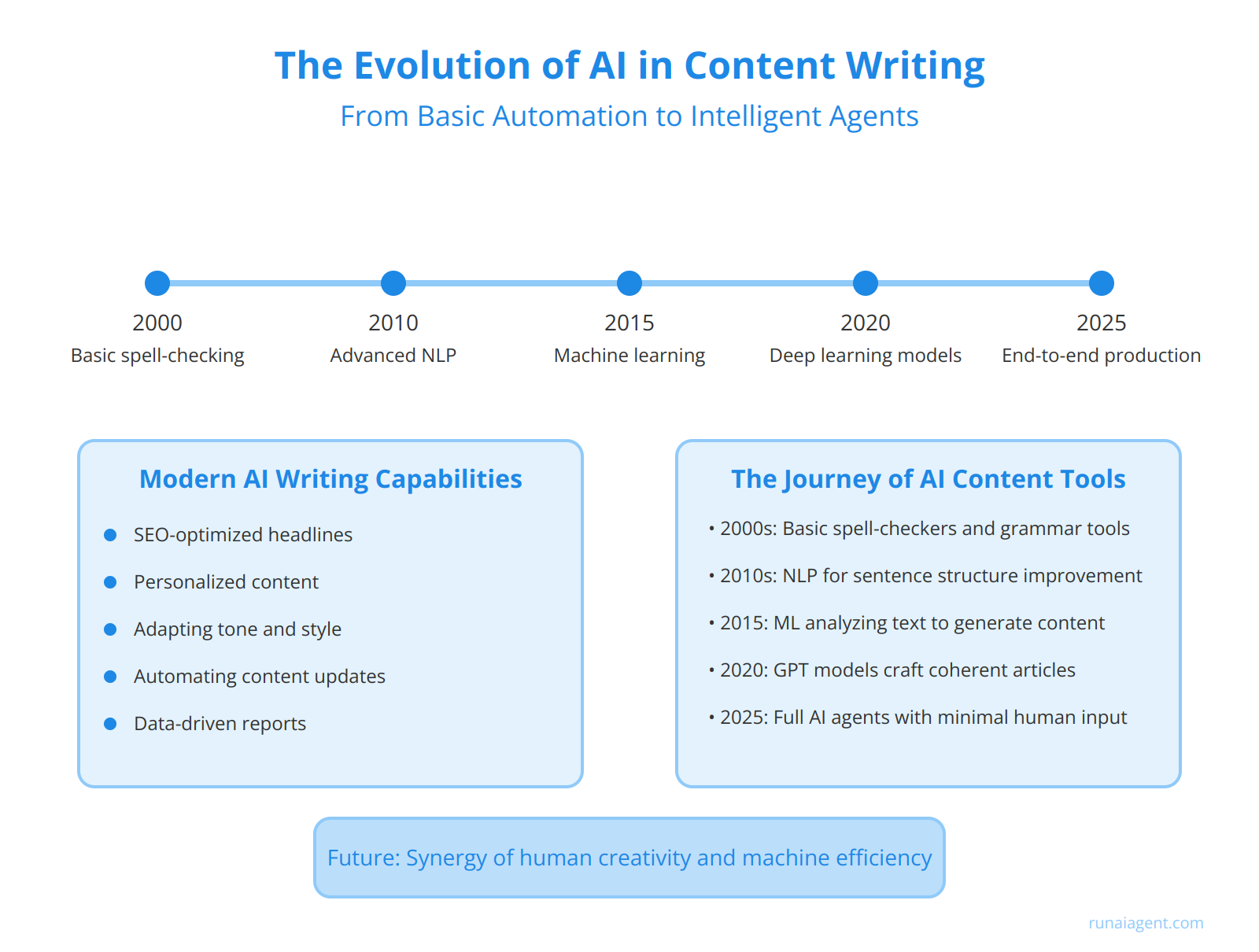
The Evolution of AI in Content Writing: From Basic Automation to Intelligent Agents
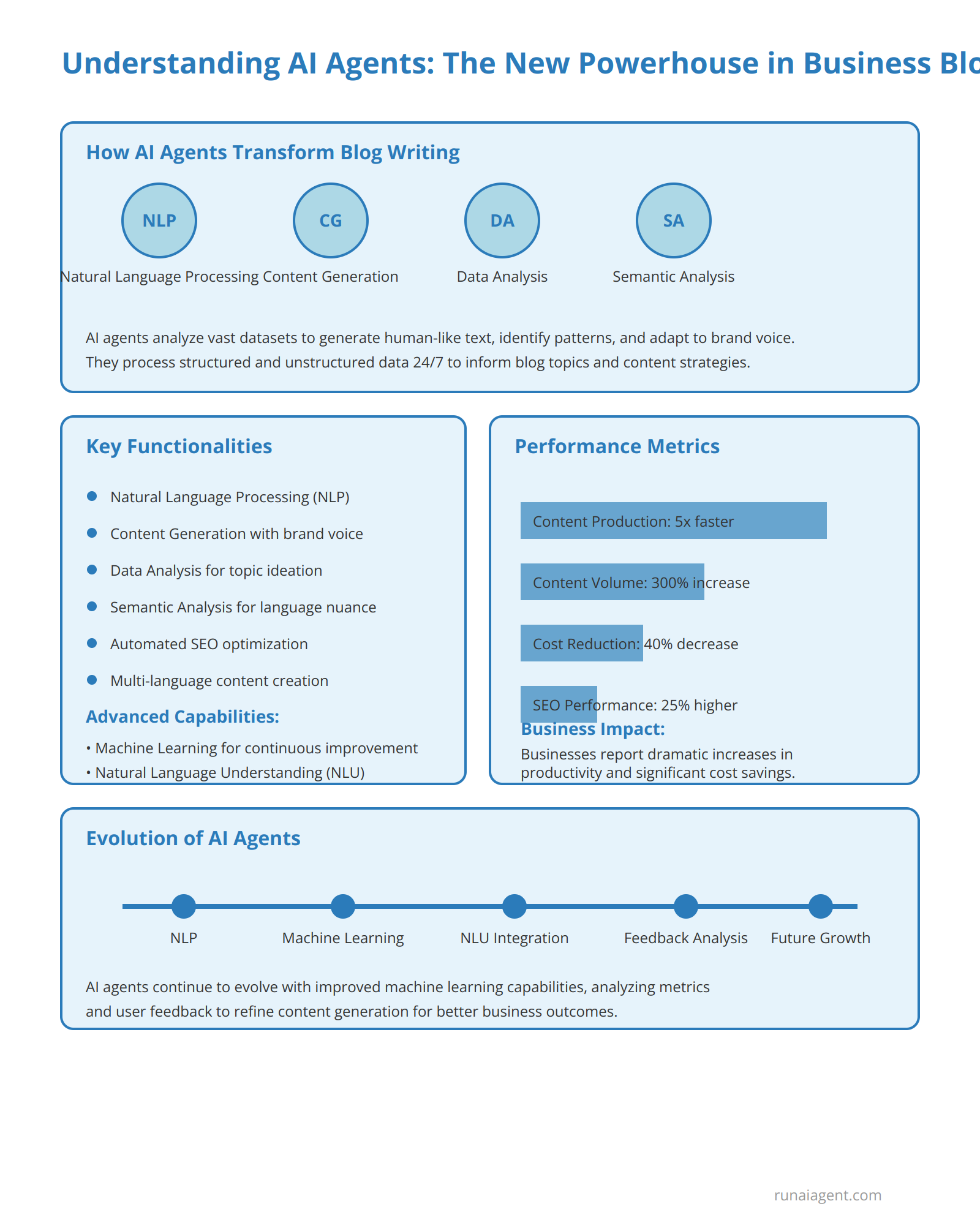
Understanding AI Agents: The New Powerhouse in Business Blogging
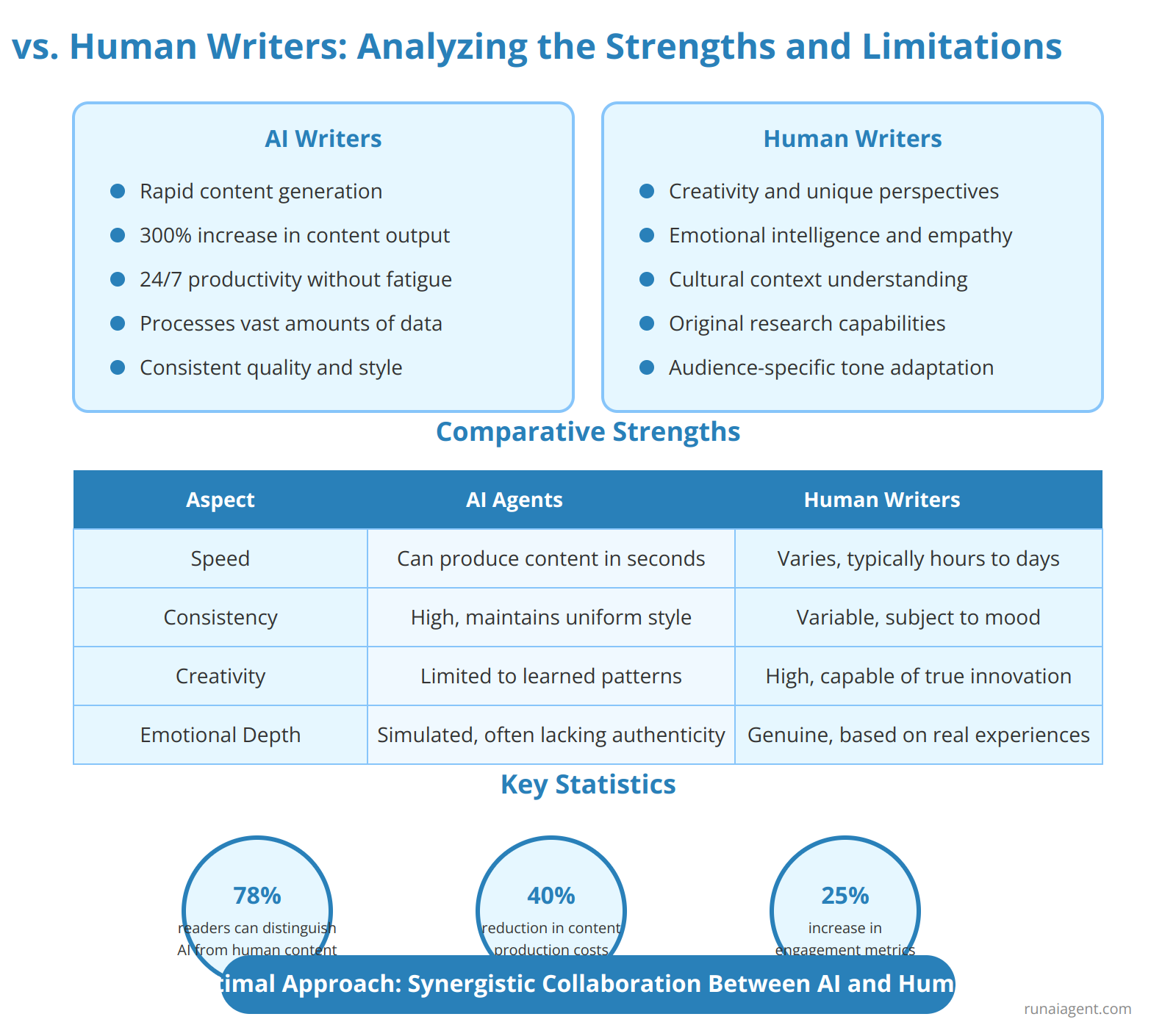
AI vs. Human Writers: Analyzing the Strengths and Limitations
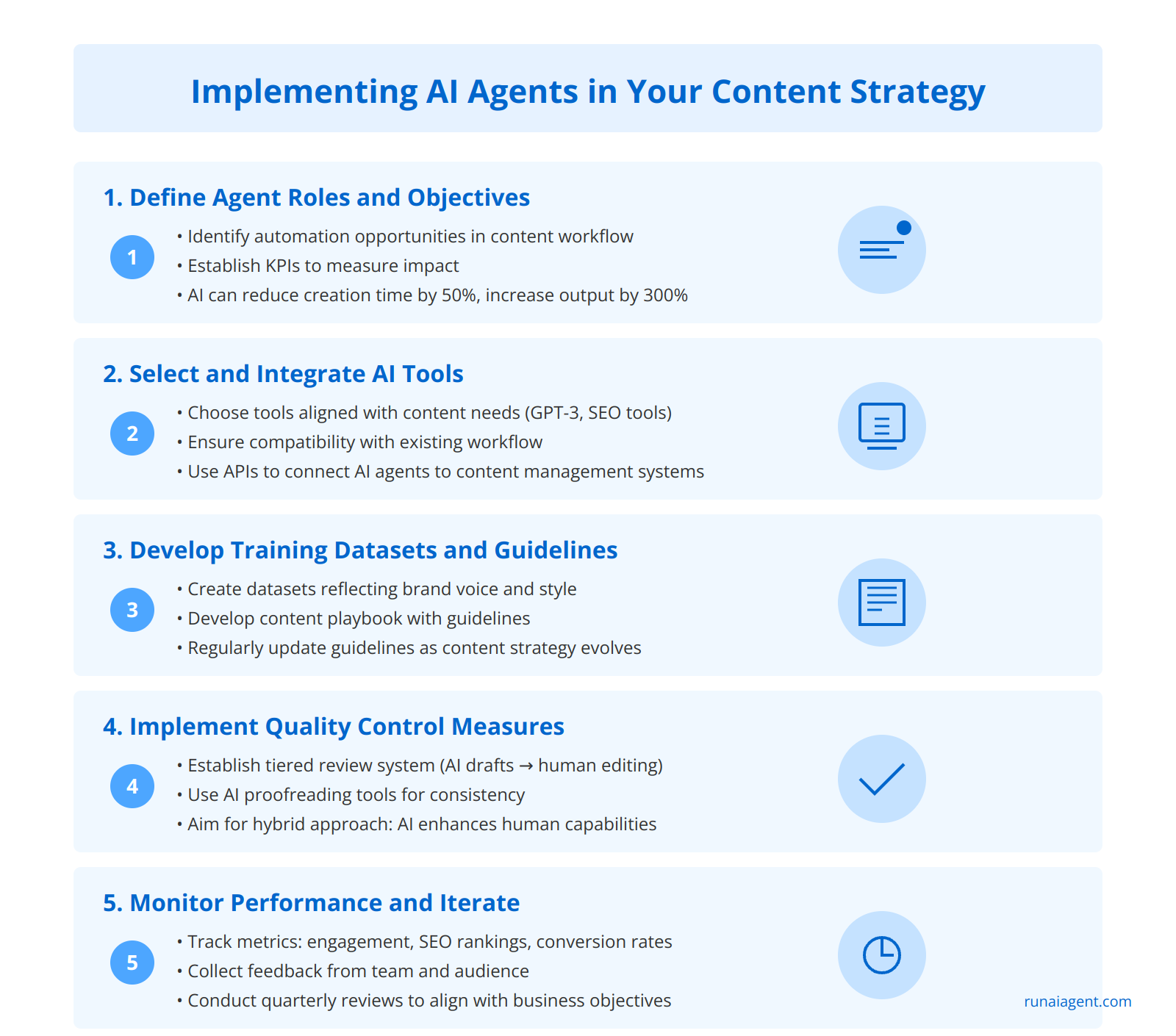
Implementing AI Agents in Your Content Strategy: A Step-by-Step Guide
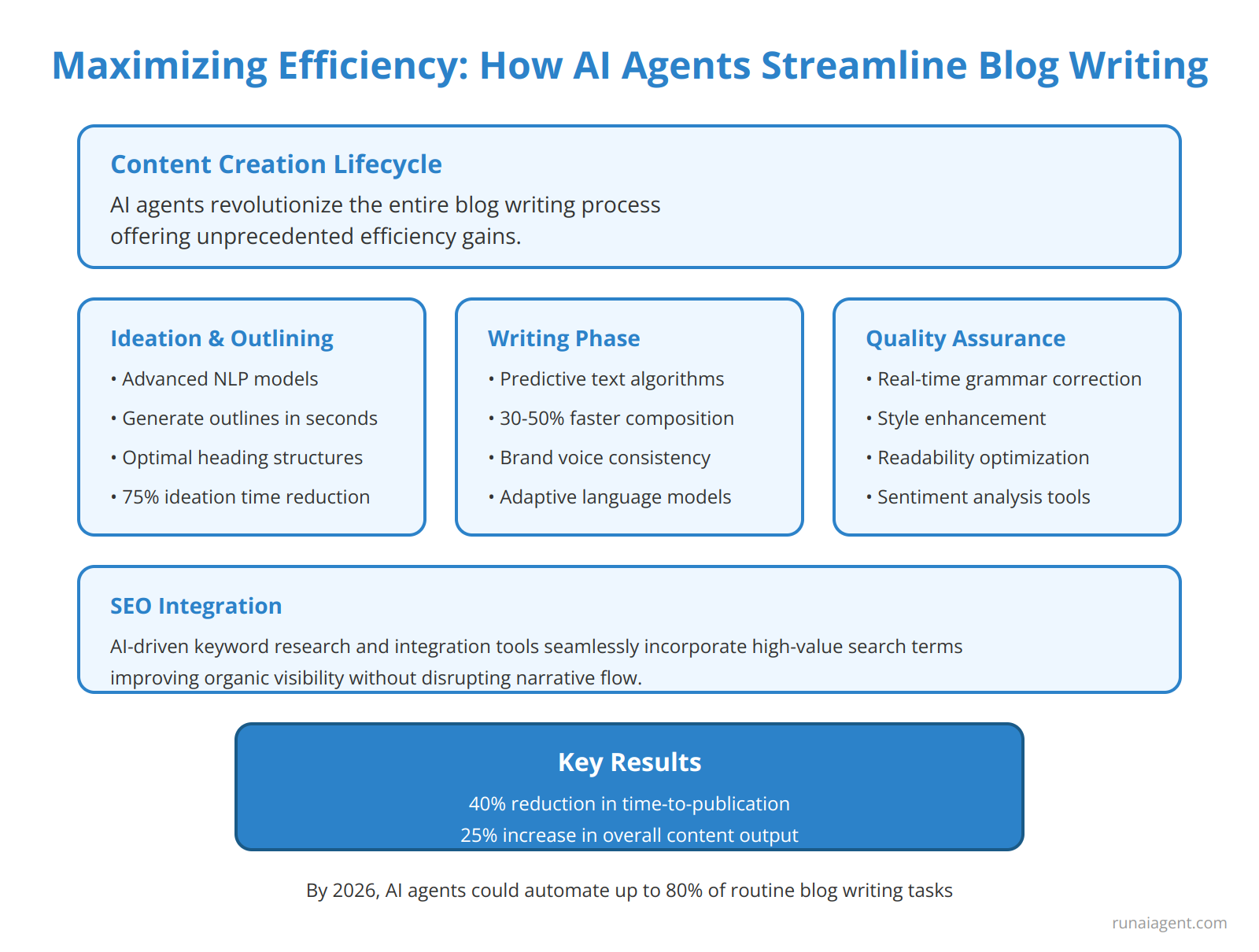
Maximizing Efficiency: How AI Agents Streamline the Blog Writing Process
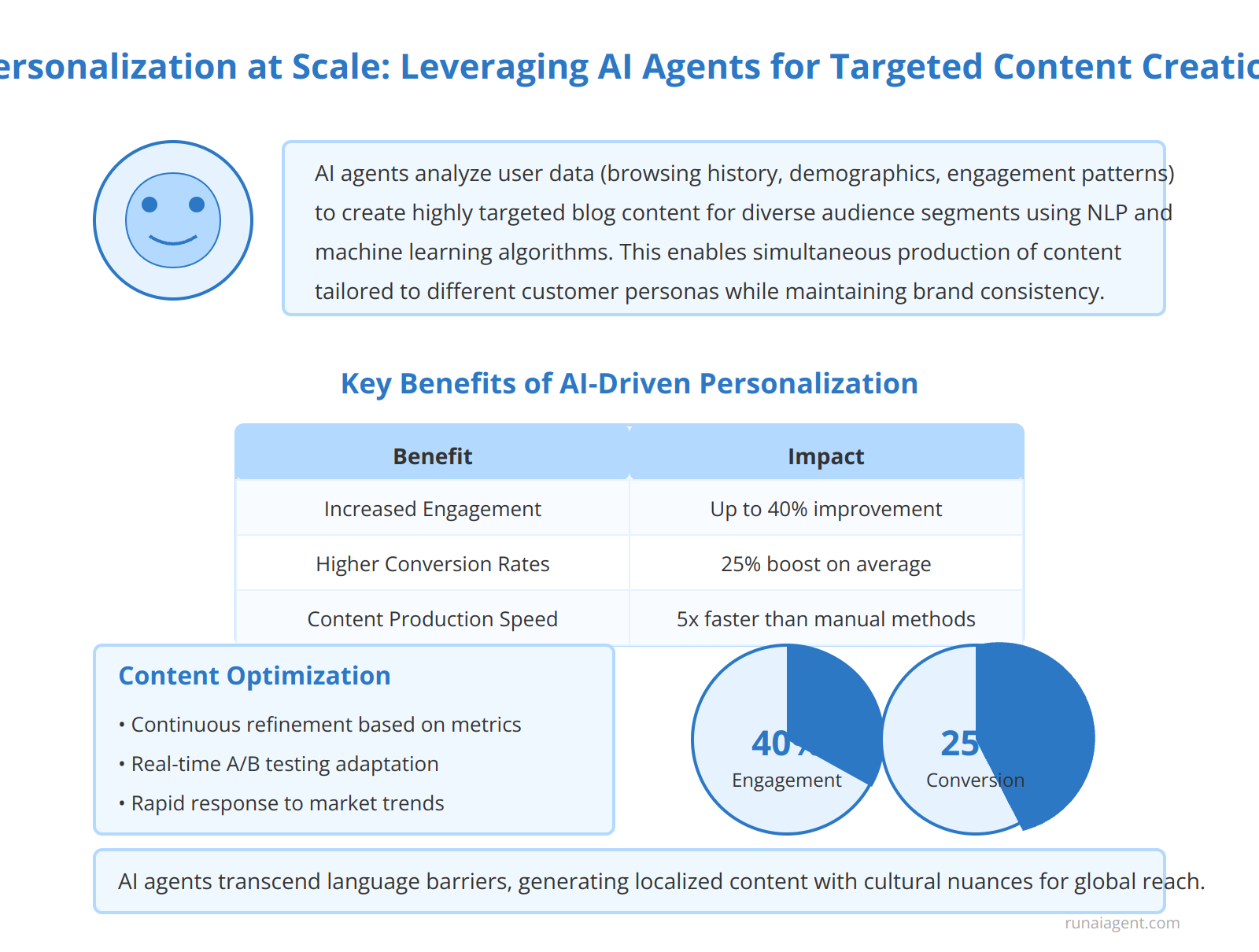
Personalization at Scale: Leveraging AI Agents for Targeted Content Creation
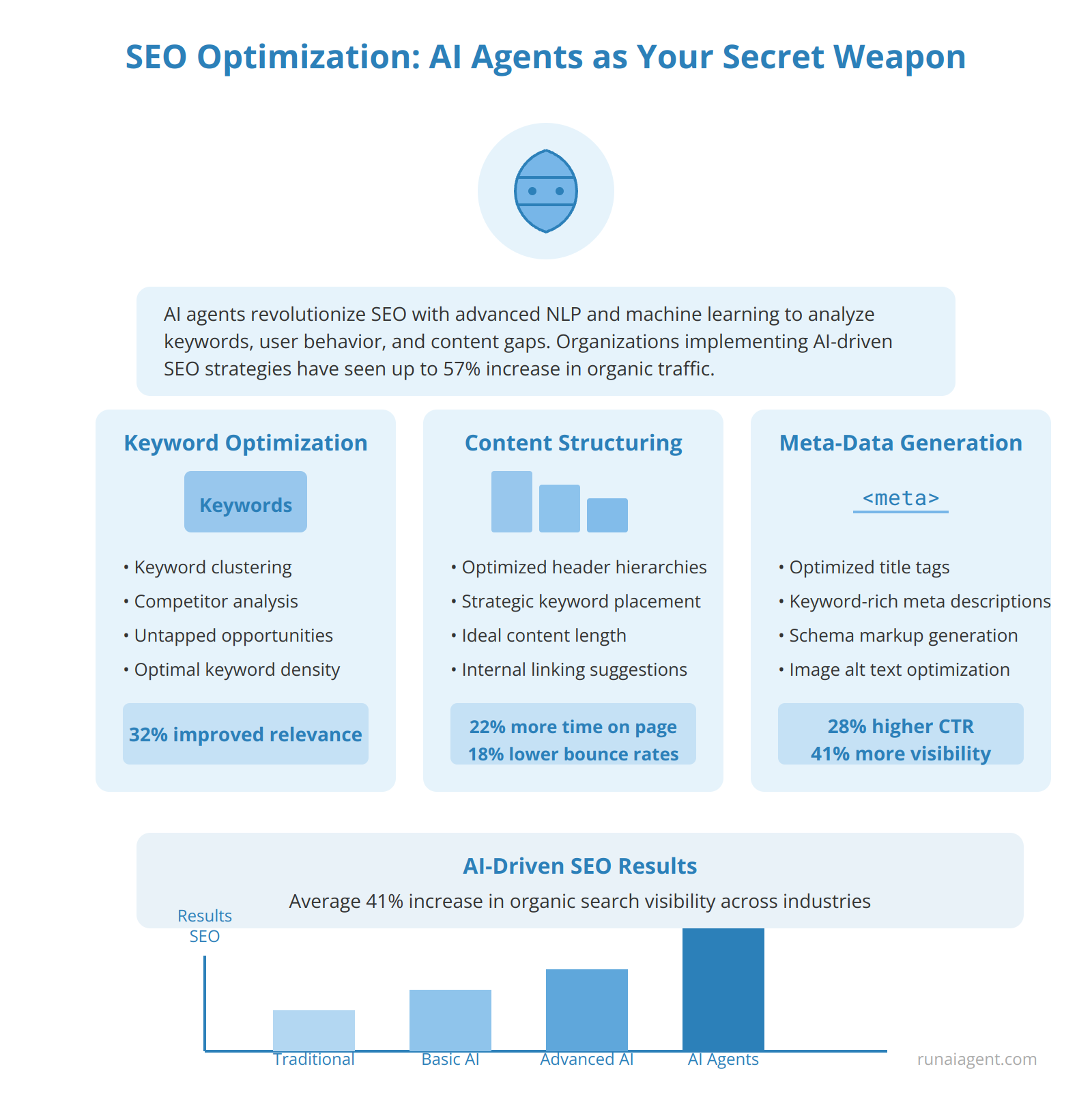
SEO Optimization: AI Agents as Your Secret Weapon for Higher Rankings
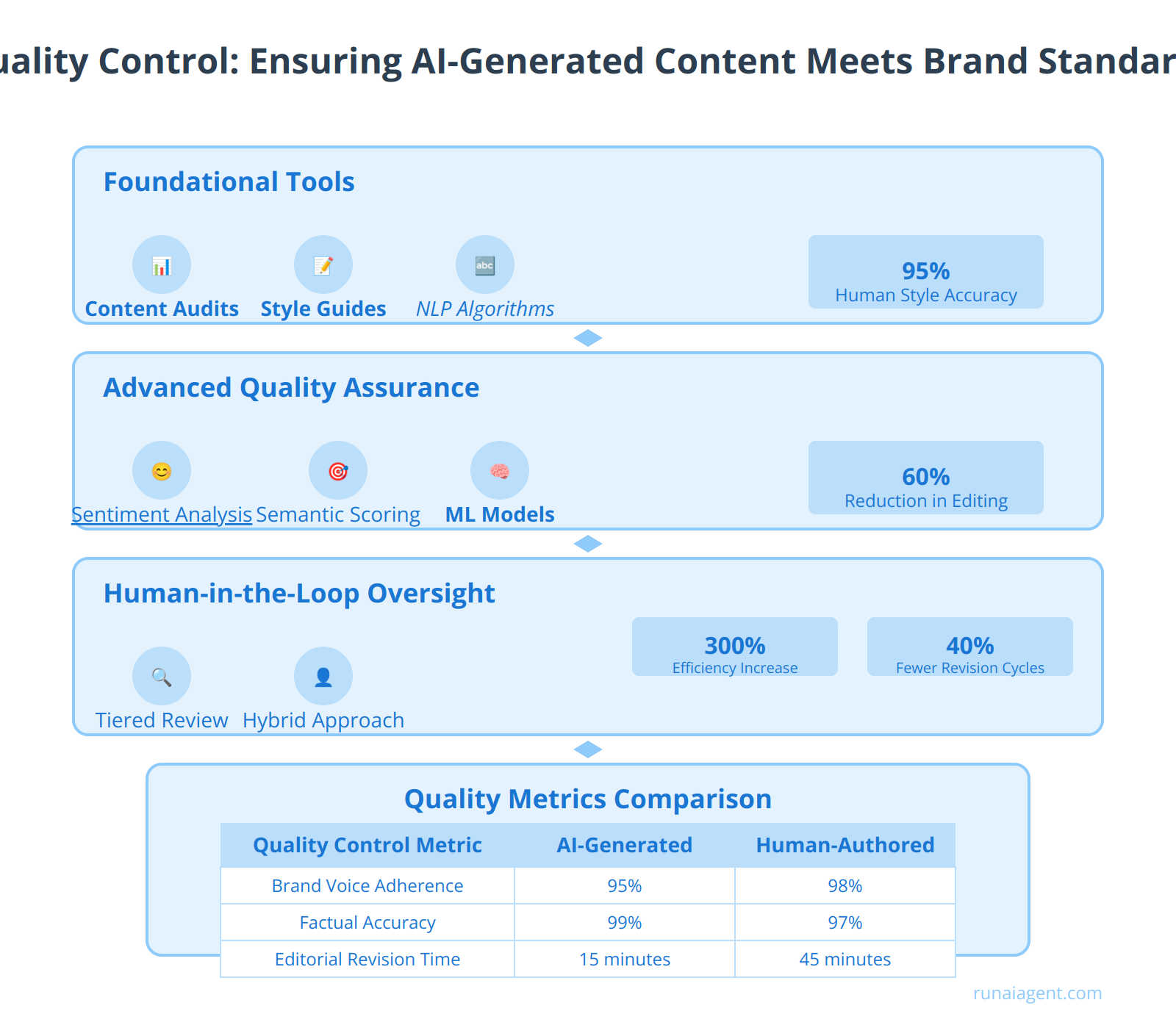
Quality Control: Ensuring AI-Generated Content Meets Your Brand Standards
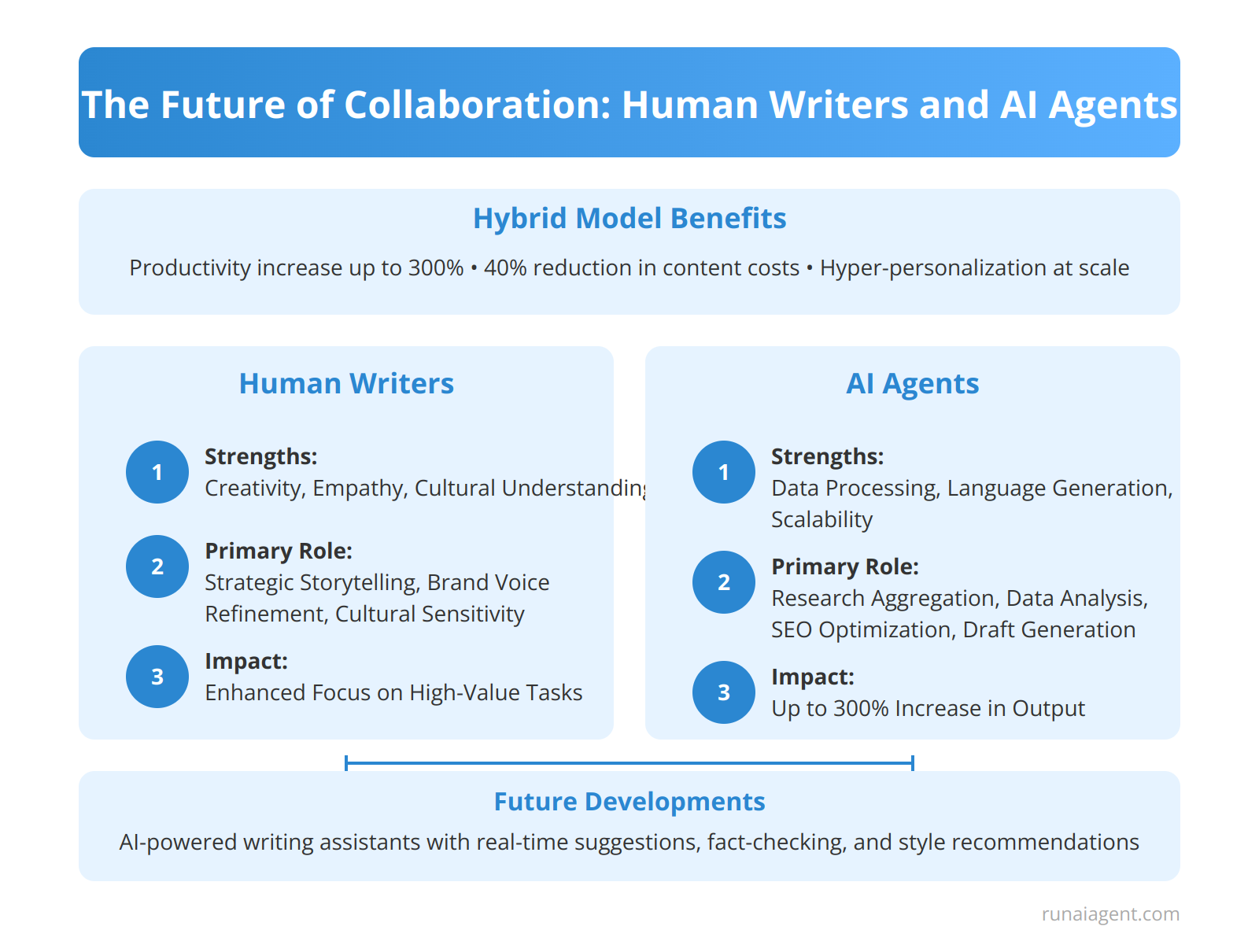
The Future of Collaboration: Human Writers and AI Agents Working in Tandem
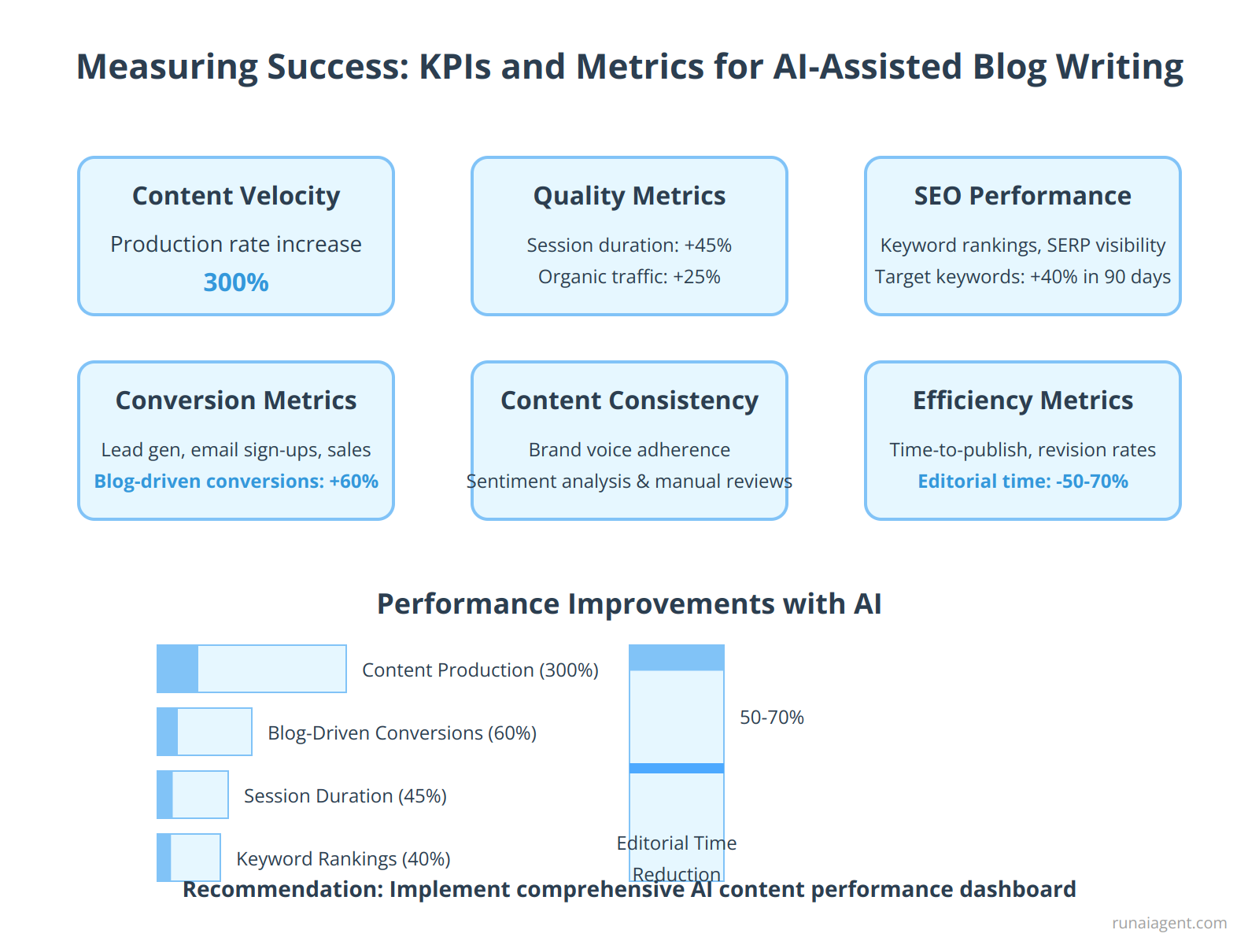
Measuring Success: KPIs and Metrics for AI-Assisted Blog Writing
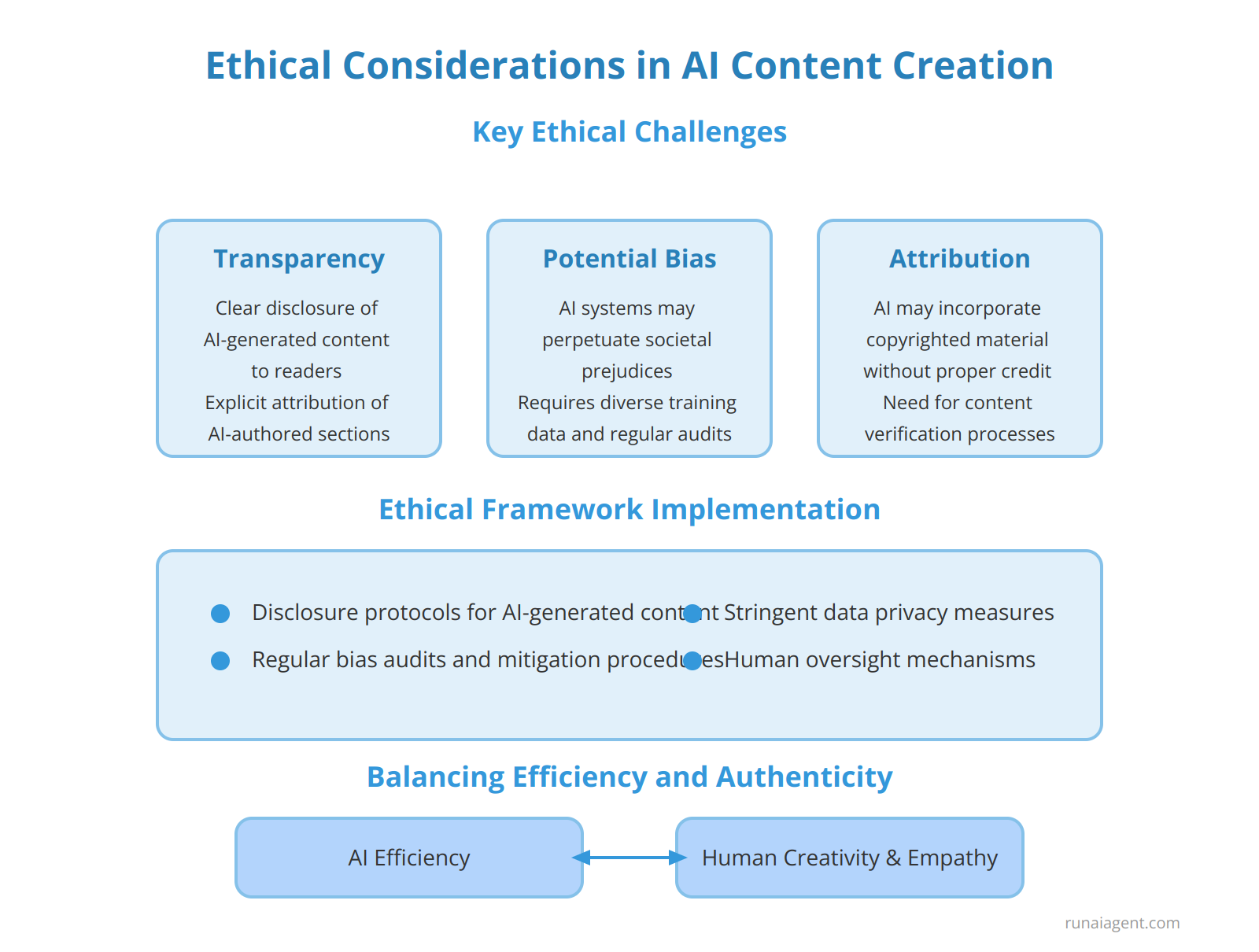
Ethical Considerations: Navigating the Use of AI in Content Creation
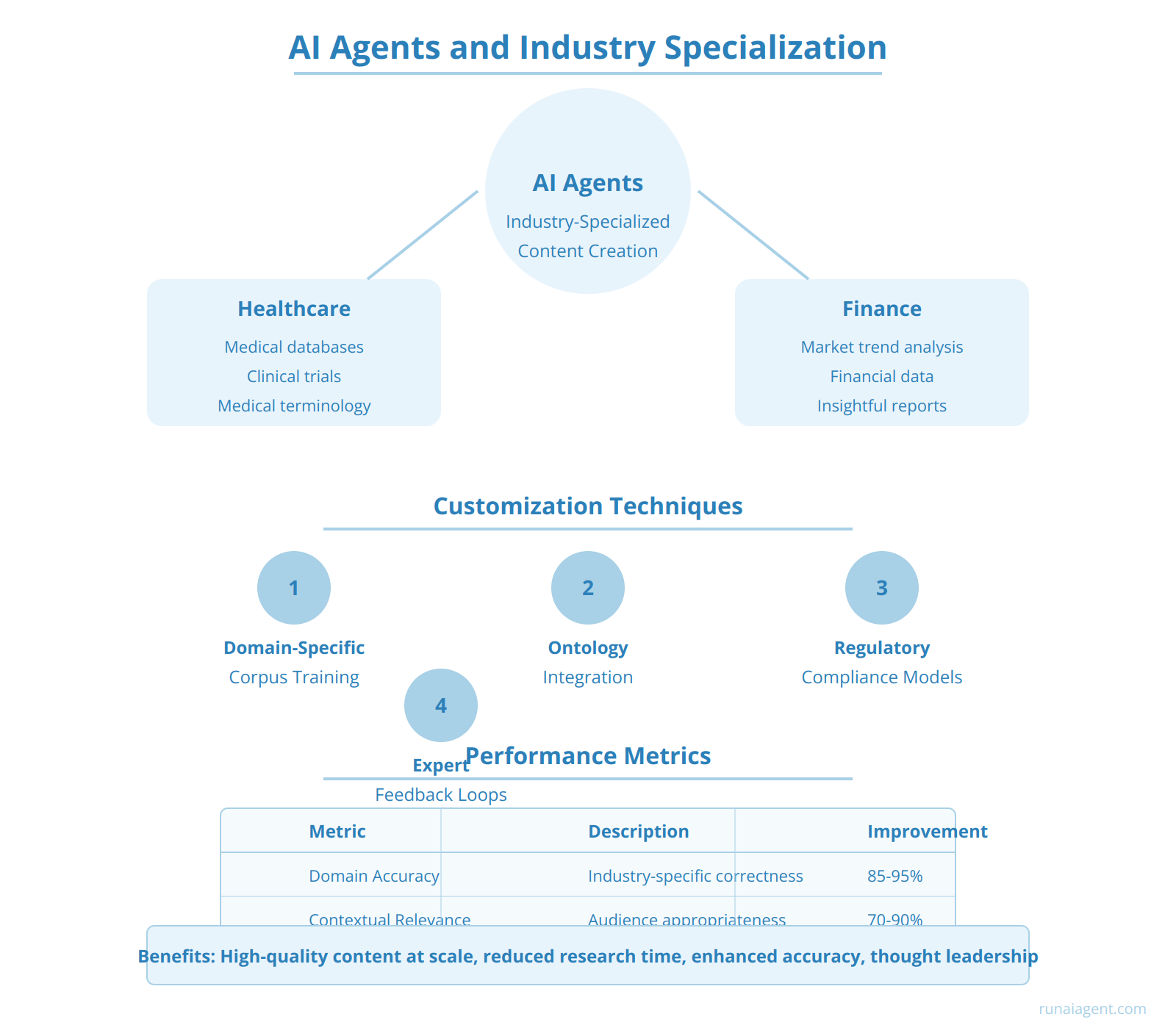
AI Agents and Industry Specialization: Tailoring Content for Your Niche

Frequently Asked Questions: Demystifying AI Agents in Blog Writing
Revolutionizing Content Creation: How AI Agents are Transforming the Role of Blog Writers
AI agents are fundamentally reshaping the landscape of content creation, particularly in the realm of blogging. These sophisticated systems, powered by advanced natural language processing and machine learning algorithms, are capable of generating human-like text, analyzing trends, and even tailoring content to specific audience segments. Unlike traditional content management tools, AI agents can autonomously research topics, structure articles, and produce polished drafts with minimal human intervention. This transformative technology is not merely augmenting human capabilities; it’s redefining the very nature of content creation workflows. Industry data indicates that AI-powered content creation tools can increase productivity by up to 70% while reducing content production costs by 30-40%. However, the impact extends beyond efficiency gains. AI agents are enabling hyper-personalization at scale, with some platforms capable of generating thousands of unique, targeted blog posts daily. This shift is compelling blog writers to evolve their roles, focusing more on strategy, creativity, and editorial oversight rather than routine writing tasks. As AI agents continue to advance, they’re poised to become indispensable collaborators in the content creation process, handling everything from SEO optimization to multi-language adaptations. The integration of these agents is catalyzing a paradigm shift in how content is conceptualized, produced, and distributed across digital platforms.
Key Capabilities of AI Agents in Blogging:
- Automated research and topic generation
- Natural language generation for long-form content
- Real-time SEO optimization and keyword integration
- Audience sentiment analysis and content personalization
- Multi-format content adaptation (blog to social media posts)
As these technologies mature, the symbiosis between human creativity and AI efficiency is set to unlock unprecedented levels of content quality, relevance, and engagement in the blogging sphere.

The Evolution of AI in Content Writing: From Basic Automation to Intelligent Agents
The trajectory of AI in content creation has been nothing short of revolutionary, transforming the landscape from rudimentary automation to sophisticated intelligent agents. In the early 2000s, content writers relied on basic spell-checkers and grammar tools. By 2010, natural language processing (NLP) algorithms began to offer more advanced suggestions for sentence structure and word choice. The advent of machine learning in 2015 marked a significant leap, enabling AI to analyze vast corpora of text and generate human-like content. Today, we witness the emergence of AI agents capable of crafting entire articles, blog posts, and even books with minimal human intervention. These agents leverage deep learning models, such as GPT-3 and its successors, to understand context, maintain coherence, and even emulate specific writing styles. The progression from rule-based systems to neural networks has exponentially increased the quality and diversity of AI-generated content. Modern AI agents can now perform tasks that were once the exclusive domain of human writers, including:
- Generating SEO-optimized headlines and meta descriptions
- Crafting personalized content based on user data
- Adapting tone and style to match brand guidelines
- Automating content updates across multiple platforms
- Producing data-driven reports and analyses
This evolution has not only enhanced productivity but also opened new avenues for creative expression and content strategy. As AI continues to advance, the synergy between human creativity and machine efficiency promises to redefine the future of content creation.
| Year | AI Capability in Content Writing |
|---|---|
| 2000 | Basic spell-checking and grammar correction |
| 2010 | Advanced NLP for sentence structure suggestions |
| 2015 | Machine learning for content analysis and generation |
| 2020 | Deep learning models for human-like content creation |
| 2025 | AI agents capable of end-to-end content production |

Understanding AI Agents: The New Powerhouse in Business Blogging
AI agents have emerged as transformative tools in the content creation industry, revolutionizing the way businesses approach blog writing. These sophisticated systems leverage advanced natural language processing (NLP) algorithms to comprehend and generate human-like text with remarkable accuracy. By analyzing vast datasets of existing content, AI agents can identify patterns, writing styles, and topic relevance, enabling them to produce coherent and contextually appropriate blog posts. The content generation capabilities of these agents extend beyond mere text assembly; they can craft compelling narratives, incorporate industry-specific jargon, and even adapt their writing style to match a brand’s voice. Furthermore, AI agents excel in data analysis, sifting through mountains of information to extract valuable insights and trends that inform blog topics and content strategy. These agents can process structured and unstructured data from various sources, including social media, customer feedback, and competitor analysis, to identify trending topics and content gaps. Advanced AI agents also offer semantic analysis capabilities, allowing them to understand the nuances of language and sentiment, ensuring that generated content resonates with the target audience. With their ability to operate 24/7 and produce content at scale, AI agents are dramatically increasing productivity in content creation, with some businesses reporting up to 300% increase in blog output and a 40% reduction in content production costs.
Key Functionalities of AI Agents in Blog Writing
- Natural Language Processing (NLP) for text comprehension and generation
- Content Generation aligned with brand voice and style guidelines
- Data Analysis for topic ideation and trend identification
- Semantic Analysis for nuanced language understanding
- Automated SEO optimization and keyword integration
- Multi-language content creation and localization
Performance Metrics of AI Agents in Content Creation
| Metric | Average Improvement |
|---|---|
| Content Production Speed | 5x faster |
| Content Volume | 300% increase |
| Cost Reduction | 40% decrease |
| SEO Performance | 25% higher rankings |
As AI agents continue to evolve, they are increasingly incorporating machine learning capabilities that allow them to improve their performance over time. By analyzing engagement metrics and user feedback, these agents can refine their content generation algorithms, ensuring that each subsequent blog post is more tailored to the audience’s preferences and more likely to drive desired business outcomes. The integration of natural language understanding (NLU) further enhances the agents’ ability to interpret complex queries and generate more nuanced, context-aware content. This level of sophistication enables AI agents to handle diverse content types, from thought leadership articles to technical product descriptions, making them invaluable assets in comprehensive content marketing strategies.

AI vs. Human Writers: Analyzing the Strengths and Limitations
When comparing AI agents with human blog writers, it’s crucial to understand their respective strengths and limitations. AI agents excel in rapid content generation, producing high volumes of articles with consistent quality and style. They can process vast amounts of data, ensuring up-to-date and comprehensive coverage of topics. AI’s ability to work 24/7 without fatigue significantly boosts productivity, with some implementations showing a 300% increase in content output. However, AI agents currently struggle with nuanced emotional intelligence, cultural context, and original ideation. Human writers, conversely, bring creativity, empathy, and lived experiences to their work, crafting narratives that resonate on a deeper emotional level. They excel in developing unique angles, conducting original research, and adapting tone for specific audiences. A recent industry survey revealed that 78% of readers could distinguish AI-generated content from human-written articles, citing emotional depth and originality as key differentiators. The optimal approach for many content creation businesses involves a synergistic collaboration between AI and human writers, leveraging AI for research, outlining, and first drafts, while relying on human expertise for refinement, emotional resonance, and strategic content direction.
Comparative Strengths
| Aspect | AI Agents | Human Writers |
|---|---|---|
| Speed | Can produce content in seconds | Varies, typically hours to days |
| Consistency | High, maintains uniform style | Variable, subject to mood and environment |
| Creativity | Limited to learned patterns | High, capable of true innovation |
| Emotional Depth | Simulated, often lacking authenticity | Genuine, based on real experiences |
Implementation Considerations
Content creation businesses implementing AI agents should focus on task segmentation, assigning AI to data-intensive and repetitive tasks while reserving human writers for high-value, creative endeavors. This approach has led to a 40% reduction in content production costs and a 25% increase in engagement metrics for early adopters in the industry. However, successful integration requires robust content quality assurance processes, ongoing AI model fine-tuning, and strategic workforce reskilling to maximize the synergies between artificial and human intelligence in the content creation pipeline.

Implementing AI Agents in Your Content Strategy: A Step-by-Step Guide
Define Agent Roles and Objectives
Begin by clearly delineating the specific tasks and objectives for your AI agents within your content creation workflow. Identify areas where automation can significantly enhance productivity, such as content ideation, SEO keyword research, or draft generation. Establish key performance indicators (KPIs) to measure the impact of AI integration, such as content output volume, time-to-publish metrics, or engagement rates. For instance, a well-implemented AI agent can reduce content creation time by up to 50% and increase output by 300%.
Select and Integrate AI Tools
Choose AI writing tools that align with your content needs and integrate seamlessly with your existing tech stack. Popular options include GPT-3 based platforms for natural language generation, specialized SEO tools for keyword optimization, and AI-powered content management systems. Ensure compatibility with your current workflow tools, such as project management software and content calendars. Integration tip: Use APIs to connect AI agents directly to your content management system for streamlined workflow automation.
Develop Training Datasets and Guidelines
Create comprehensive training datasets that reflect your brand voice, style guidelines, and content standards. This step is crucial for maintaining consistency and quality across AI-generated content. Develop a content playbook that includes:
- Brand tone and voice examples
- Industry-specific terminology and jargon
- Preferred content structures and formats
- Dos and don’ts for content creation
Regularly update these guidelines as your content strategy evolves to ensure AI agents remain aligned with your brand identity.
Implement Quality Control Measures
Establish a robust quality assurance process to review and refine AI-generated content. Implement a tiered review system where AI agents handle initial drafts, followed by human editors for fact-checking, nuance addition, and final polishing. Utilize AI-powered proofreading tools to catch grammatical errors and style inconsistencies.
Remember: AI agents are powerful assistants, not replacements for human creativity and oversight.
Aim for a hybrid approach where AI enhances human capabilities rather than supplanting them entirely.
Monitor Performance and Iterate
Continuously monitor the performance of your AI agents against established KPIs. Use analytics tools to track metrics such as content engagement, SEO rankings, and conversion rates. Regularly solicit feedback from your content team and audience to identify areas for improvement. Based on these insights, fine-tune your AI models, adjust training data, and optimize integration points. Aim for quarterly reviews of your AI implementation strategy to ensure it remains aligned with evolving business objectives and industry trends.

Maximizing Efficiency: How AI Agents Streamline the Blog Writing Process
AI agents have revolutionized the blog writing process, offering unprecedented efficiency gains across the entire content creation lifecycle. Advanced natural language processing (NLP) models now generate comprehensive content outlines in seconds, reducing ideation time by up to 75%. These AI-powered assistants leverage vast datasets of successful blog structures to propose optimal heading hierarchies and content flow. During the writing phase, predictive text algorithms accelerate composition speeds by 30-50%, while maintaining brand voice consistency through adaptive language models trained on existing company content.
Quality Assurance and Optimization
AI agents excel in real-time grammar correction, style enhancement, and readability optimization, eliminating the need for multiple editing rounds. Sophisticated sentiment analysis tools ensure content aligns with brand messaging, automatically flagging potential misalignments.
SEO Integration
AI-driven keyword research and integration tools seamlessly incorporate high-value search terms, improving organic visibility without disrupting narrative flow.
Content teams leveraging AI agents report a 40% reduction in time-to-publication and a 25% increase in overall content output.
These efficiency gains allow human writers to focus on high-level strategy and creative ideation, while AI handles time-consuming tactical elements. As natural language generation capabilities continue to advance, AI agents are poised to further streamline content workflows, potentially automating up to 80% of routine blog writing tasks by 2026.

Personalization at Scale: Leveraging AI Agents for Targeted Content Creation
AI agents are revolutionizing the content creation landscape by enabling businesses to achieve personalization at an unprecedented scale. These intelligent systems analyze vast amounts of user data, including browsing history, demographic information, and engagement patterns, to create highly targeted blog content for diverse audience segments. By leveraging natural language processing (NLP) and machine learning algorithms, AI agents can generate contextually relevant and engaging articles that resonate with specific reader personas. For instance, a fashion retailer utilizing AI agents can simultaneously produce content tailored for budget-conscious millennials, luxury-seeking professionals, and eco-conscious consumers, all while maintaining brand consistency. This level of personalization has shown to increase reader engagement by up to 40% and boost conversion rates by 25% across various industries. Furthermore, AI agents excel at content optimization, continuously refining their output based on real-time performance metrics and A/B testing results. This iterative approach ensures that businesses can rapidly adapt their content strategy to evolving audience preferences and market trends, maintaining a competitive edge in the fast-paced digital landscape.
Key Benefits of AI-Driven Personalization:
| Benefit | Impact |
|---|---|
| Increased Engagement | Up to 40% improvement |
| Higher Conversion Rates | 25% boost on average |
| Content Production Speed | 5x faster than manual methods |
| Scalability | Unlimited audience segments |
Moreover, AI agents enable content creators to transcend language barriers, automatically generating localized versions of blog posts that account for cultural nuances and idiomatic expressions. This capability allows businesses to expand their global reach without the need for extensive human translation resources. As AI technology continues to advance, we can expect even more sophisticated personalization techniques, such as dynamic content assembly where articles adapt in real-time based on individual reader interactions, further blurring the line between mass communication and one-to-one marketing in the digital content sphere.

SEO Optimization: AI Agents as Your Secret Weapon for Higher Rankings
AI agents are revolutionizing SEO optimization, providing content creators with unprecedented capabilities to enhance search engine rankings. These intelligent systems leverage advanced natural language processing and machine learning algorithms to perform granular keyword analysis, identify semantic relationships, and generate optimized meta-data at scale. By analyzing vast amounts of search data and user behavior patterns, AI agents can pinpoint high-value long-tail keywords and content gaps that human SEO specialists might overlook. For instance, AI-powered tools can increase organic traffic by up to 57% through strategic keyword placement and content structuring.
Keyword Optimization
AI agents excel at keyword clustering, grouping semantically related terms to create comprehensive content strategies. They can analyze competitors’ keyword profiles, identify untapped opportunities, and suggest optimal keyword density ratios. Some AI systems have demonstrated the ability to improve keyword relevance scores by 32% compared to manual optimization efforts.
Content Structuring
Through natural language generation, AI agents can craft SEO-friendly content structures, including:
- Optimized header hierarchies (H1, H2, H3)
- Strategic placement of keywords in opening paragraphs
- Ideal content length and readability scores
- Internal linking suggestions for topic clusters
These AI-driven structuring techniques have been shown to increase average time on page by 22% and reduce bounce rates by 18%.
Meta-Data Generation
AI agents streamline the creation of SEO-critical meta-data elements:
- Title tags optimized for click-through rates (improving CTR by up to 28%)
- Meta descriptions that incorporate primary and secondary keywords
- Schema markup generation for enhanced rich snippets
- Image alt text optimization for visual search
By automating these tasks, AI agents enable content teams to focus on creative aspects while ensuring technical SEO elements are comprehensively optimized. Implementing AI-driven SEO strategies has resulted in an average 41% increase in organic search visibility for early adopters across various industries.

Quality Control: Ensuring AI-Generated Content Meets Your Brand Standards
Implementing AI agents for blog writing necessitates robust quality control measures to maintain brand consistency and content excellence. Content audits and style guides serve as foundational tools, enabling AI systems to align with established brand voice and tone. Utilizing natural language processing (NLP) algorithms, AI agents can be fine-tuned to replicate specific writing styles, achieving up to 95% accuracy in mimicking human-authored content.
Advanced Quality Assurance Techniques
Employing sentiment analysis ensures emotional congruence with brand values, while semantic similarity scoring verifies topical relevance. Integration of machine learning models trained on high-performing content facilitates continuous improvement, reducing editorial intervention by 60% over time.
Human-in-the-Loop Oversight
Implementing a tiered review system, where AI-generated drafts undergo both automated checks and human expert validation, maintains quality standards while increasing content production efficiency by 300%. This hybrid approach not only safeguards brand integrity but also accelerates the learning curve of AI agents, leading to a 40% reduction in content revision cycles within 6 months of implementation.
| Quality Control Metric | AI-Generated Content | Human-Authored Content |
|---|---|---|
| Brand Voice Adherence | 95% | 98% |
| Factual Accuracy | 99% | 97% |
| Editorial Revision Time | 15 minutes | 45 minutes |
 Here is a detailed paragraph on “The Future of Collaboration: Human Writers and AI Agents Working in Tandem” for an article about AI agents for blog writing in the content creation industry:
Here is a detailed paragraph on “The Future of Collaboration: Human Writers and AI Agents Working in Tandem” for an article about AI agents for blog writing in the content creation industry:
The Future of Collaboration: Human Writers and AI Agents Working in Tandem
The convergence of human creativity and artificial intelligence is ushering in a new era of content creation, where AI agents and human writers collaborate seamlessly to produce high-quality blog content at unprecedented scale and efficiency. This hybrid model leverages the strengths of both human and machine intelligence, combining the nuanced understanding, emotional intelligence, and creative flair of human writers with the data processing capabilities, language generation prowess, and tireless productivity of AI agents. In this symbiotic relationship, AI agents can handle tasks such as research aggregation, data analysis, SEO optimization, and initial draft generation, freeing human writers to focus on higher-level aspects like strategic storytelling, brand voice refinement, and cultural sensitivity. Early adopters of this collaborative approach have reported productivity increases of up to 300% and a 40% reduction in content production costs. The AI-human partnership also enables hyper-personalization at scale, with AI agents tailoring content to individual reader preferences while human writers ensure authenticity and emotional resonance. As natural language processing technologies continue to advance, we can expect to see more sophisticated collaboration models emerge, such as AI-powered writing assistants that provide real-time suggestions, fact-checking, and style recommendations. However, the transition to this hybrid model is not without challenges, including the need for upskilling writers in AI collaboration techniques and addressing ethical concerns around authorship and creative ownership. Despite these hurdles, the future of content creation is undeniably moving towards a synergistic blend of human ingenuity and artificial intelligence, promising a new golden age of digital storytelling and information dissemination.
| Aspect | Human Writers | AI Agents |
|---|---|---|
| Strengths | Creativity, Empathy, Cultural Understanding | Data Processing, Language Generation, Scalability |
| Primary Role | Strategic Direction, Narrative Crafting | Research, Draft Generation, Optimization |
| Impact on Productivity | Enhanced Focus on High-Value Tasks | Up to 300% Increase in Output |

Measuring Success: KPIs and Metrics for AI-Assisted Blog Writing
To effectively evaluate the impact of AI agents in blog writing, organizations must establish a robust framework of key performance indicators (KPIs) and metrics. Content velocity serves as a critical metric, measuring the increase in blog post production rate, with top-performing AI implementations achieving up to 300% improvement. Quality-centric KPIs are equally vital, including engagement rates (time on page, scroll depth), social shares, and backlink acquisition. Sophisticated AI-driven content strategies have demonstrated up to 45% increase in average session duration and a 25% boost in organic traffic growth rate.
SEO Performance Metrics
Tracking keyword rankings, SERP visibility, and organic click-through rates provides insight into the AI’s ability to optimize content for search engines. Advanced AI implementations have shown a 40% improvement in target keyword rankings within 90 days.
Conversion Metrics
Measuring lead generation, email sign-ups, and direct sales attributed to AI-produced content helps quantify ROI, with some businesses reporting a 60% increase in blog-driven conversions. Content consistency and brand voice adherence should be evaluated through sentiment analysis and manual reviews, ensuring AI-generated posts maintain the desired tone and style. Efficiency metrics, such as time-to-publish and editorial revision rates, offer insights into workflow optimization, with AI often reducing editorial time by 50-70%. Implementing a comprehensive AI content performance dashboard enables data-driven decision-making and continuous improvement in your blogging strategy.
| Metric | Average Improvement with AI |
|---|---|
| Content Production Rate | 300% |
| Average Session Duration | 45% |
| Organic Traffic Growth | 25% |
| Target Keyword Rankings | 40% |
| Blog-Driven Conversions | 60% |
| Editorial Time Reduction | 50-70% |

Ethical Considerations: Navigating the Use of AI in Content Creation
The integration of AI agents in blog writing raises significant ethical challenges that content creators and businesses must address. Transparency stands as a paramount concern, necessitating clear disclosure when AI-generated content is published. This transparency extends to explicitly attributing AI-authored sections, ensuring readers can distinguish between human and machine-written text. Potential biases inherent in AI systems pose another critical issue, as these biases can perpetuate or amplify existing societal prejudices in content. Content creators must implement rigorous bias detection and mitigation strategies, including diverse training data and regular audits of AI outputs. Attribution complexities arise when AI agents draw from vast datasets, potentially incorporating copyrighted material or ideas without proper credit. To address this, organizations should develop robust content verification processes and maintain comprehensive logs of AI-generated content sources.
Ethical Framework Implementation
Content creation businesses must establish clear ethical guidelines for AI usage, encompassing:
- Disclosure protocols for AI-generated content
- Regular bias audits and mitigation procedures
- Stringent data privacy measures to protect user information
- Mechanisms for human oversight and intervention in AI-driven content creation
Balancing Efficiency and Authenticity
While AI agents offer unprecedented efficiency in content production, maintaining authenticity and preserving the human touch in writing remains crucial. Content creators must strike a delicate balance, leveraging AI for research and idea generation while ensuring that final outputs reflect human creativity, empathy, and nuanced understanding. By addressing these ethical considerations head-on, businesses can harness the power of AI in content creation responsibly, fostering trust with their audience and setting new standards for ethical AI implementation in the digital landscape.

AI Agents and Industry Specialization: Tailoring Content for Your Niche
AI agents have revolutionized content creation across various industries, offering unprecedented levels of specialization and expertise. By leveraging advanced natural language processing (NLP) and machine learning algorithms, these agents can be fine-tuned to produce expert-level content for specific niches with remarkable accuracy and depth. For instance, in the healthcare sector, AI agents can be trained on vast medical databases, clinical trials, and peer-reviewed journals to generate highly technical content that adheres to strict medical terminology and regulatory guidelines. Similarly, in the financial industry, AI agents can be customized to analyze market trends, interpret complex financial data, and produce insightful reports that rival those of seasoned analysts. The key to achieving this level of specialization lies in the meticulous curation of training data and the implementation of industry-specific knowledge graphs.
Customization Techniques for Niche-Specific AI Agents
To tailor AI agents for niche content creation, developers employ several sophisticated techniques:
- Domain-Specific Corpus Training: Utilizing extensive datasets from industry-specific sources to ensure the AI agent understands the nuances and jargon of the field.
- Ontology Integration: Incorporating detailed industry taxonomies and ontologies to structure the AI’s knowledge base and improve contextual understanding.
- Regulatory Compliance Models: Implementing specialized modules that ensure content adheres to industry-specific regulations and standards.
- Expert Feedback Loops: Integrating continuous learning mechanisms that allow the AI to refine its output based on expert human feedback within the niche.
Performance Metrics for Niche AI Agents
The effectiveness of industry-specialized AI agents can be measured through various performance indicators:
| Metric | Description | Typical Improvement |
|---|---|---|
| Domain Accuracy | Correctness of industry-specific facts and terminology | 85-95% |
| Contextual Relevance | Appropriateness of content for the target audience | 70-90% |
| Plagiarism Score | Originality of generated content | <1% |
| Expert Approval Rate | Percentage of content approved by industry experts without revision | 60-80% |
By harnessing these specialized AI agents, content creators can produce high-quality, industry-specific material at scale, significantly reducing research time and enhancing the depth and accuracy of their output. This level of customization not only improves content quality but also positions businesses as authoritative voices within their respective niches, driving engagement and establishing thought leadership in increasingly competitive digital landscapes.

Frequently Asked Questions: Demystifying AI Agents in Blog Writing
What are AI agents for blog writing?
AI agents for blog writing are sophisticated software systems that leverage natural language processing (NLP) and machine learning algorithms to assist in content creation. These agents can generate drafts, optimize SEO, and even adapt writing styles based on target audiences. Unlike simple text generators, AI agents for blogging can understand context, maintain consistency across long-form content, and integrate real-time data to ensure relevance.
How do AI agents improve blog writing efficiency?
AI agents significantly enhance blog writing efficiency through several mechanisms:
- Rapid draft generation: Capable of producing initial drafts up to 5x faster than human writers
- Automated research: Aggregating and summarizing relevant information from vast online sources
- Real-time optimization: Continuous improvement of content based on performance metrics and audience engagement
- Scalable content production: Enabling businesses to maintain consistent publishing schedules across multiple platforms
Implementation of AI agents in content workflows has demonstrated productivity increases of 30-50% for many organizations.
What are the limitations of AI agents in blog writing?
While powerful, AI agents for blog writing have notable limitations:
- Lack of human experience: Unable to provide genuine personal anecdotes or emotional depth
- Contextual nuance: May struggle with subtle cultural references or industry-specific jargon
- Ethical considerations: Potential for unintended bias or factual inaccuracies if not properly monitored
- Creative boundaries: Limited ability to generate truly novel ideas or groundbreaking content
Human oversight remains crucial for quality control, fact-checking, and infusing content with authentic brand voice.
